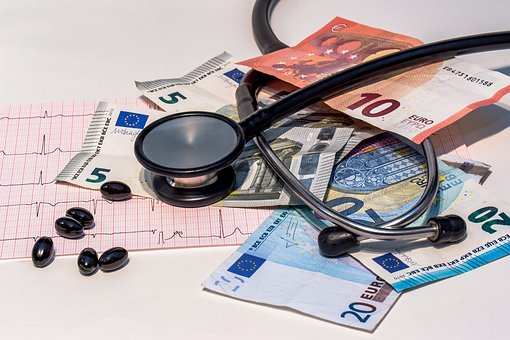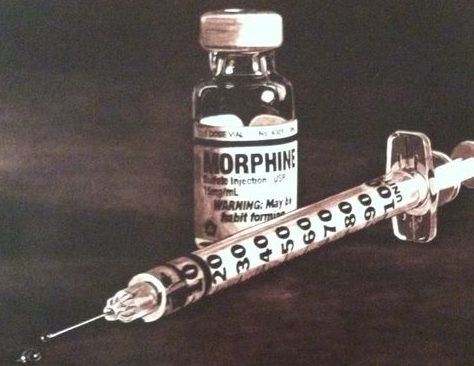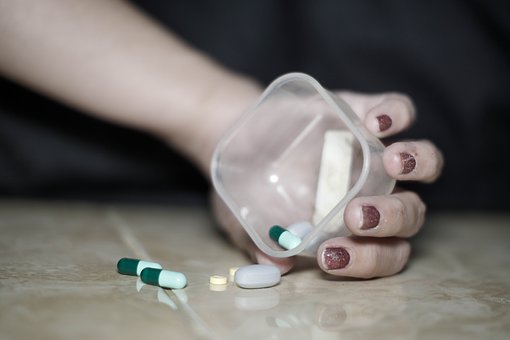Because of the following accident, I began research on treating road accident trauma with CBD.
“My daughter and grandson were both in a horrific, single-car accident, causing them to leave the road and hit a tree, head-on. This was March 1, this year. We are not sure why we didn’t lose them both, perhaps an angel watching over them. She had several broken bones in her body including her face, arm, and both legs and ankles and three fractured ribs. She has been on morphine, antibiotics, blood thinners, and other drugs for three weeks. A week after the accident, my grandson who we all thought was fine, ended up with a rupture in his intestines, and they had to remove a part of it. He is only 5 and was also prescribed morphine. Hence, my concern about prescription drugs.”
Serious road accidents are a reality, involving another vehicle(s) or a single vehicle. Leading causes are drug or alcohol-related, distractions, driver fatigue, and aggressive driving. It is worth noting here that when we say drug-related, we are not just talking about illegal drugs; driving under the influence of pharmaceutical or prescription drugs is also a big factor.
Transport Canada states that the number of motor vehicle serious injuries is 10,322 (2016).
In their Annual Global Road Crash Statistics, the Association for Safe International Road Travel states: “In the US, 20 – 50 million are injured or disabled.”
Road crashes cost USD 518 billion globally, costing individual countries 1-2% of their annual GDP.
High Costs of Prescription Drugs
The Wall Street Journal states that prescription drug costs in the United States rose an astonishing 9.8 percent between May 2015 and May 2016.

Canada’s health system is taking its toll as well. While Canada is the only country in the world that has universal health care, it does not have universal drug coverage meaning many Canadians are doing without their medication, cutting back, or going into debt.
Medications Prescribed for Road Accident Trauma
While medication can vary in critical patients some common ones are:
1. Anti-inflammatory. These medications shrink swelling in tissues such as muscles, joints, nerves, or ligaments. The swelling causes the surrounding tissue to stretch thus causing pain to the nerve endings. You can get over-the-counter anti-inflammatory drugs such as Aleve or ibuprofen. NSAIDs can raise your risk of stroke or heart attack. You should not use anti-inflammatory drugs if you are taking blood thinners as the combination can cause bleeding of the stomach lining or if you are pregnant as overdosing could lead to gastrointestinal complications.
Side effects: stomach pain, headaches, dizziness, ulcers, heartburn, ringing in the ears, allergic reactions, leg swelling, liver or kidney problems, and high blood pressure.
2. Muscle relaxers. As the name implies, there are several available which can cause drowsiness so avoid driving or drinking alcohol. They should not be taken with certain anti-depressants.
Side Effects: paraesthesia (an abnormal sensation, typically tingling or pricking such as pins and needles caused chiefly by pressure on or damage to peripheral nerves), insomnia, weakness, dizziness, drowsiness, and blurred vision.
3. Painkillers. Painkillers such as Hydrochodrone, morphine, and oxycodone, block the brain’s ability to feel pain thus making you feel more comfortable. Because of their side effects and the risk of dependency, be cautious.
Side Effects: vomiting, headache, dizziness, lethargy, sedation, respiratory complications, nausea.

4. Antibiotics. These are medications that help stop infections caused by bacteria. When on antibiotics, it is important to finish the entire prescription; stopping too early could cause a strain of infection resistant to that antibiotic, making you sicker than before.
Side Effects: Vomiting, severe diarrhea, vaginal itching or discharge, rash, shortness of breath, swelling of lips and tongue, white patches on the tongue, upset stomach.
5. Antidepressants. These are medications that can help relieve symptoms of depression, social anxiety disorder, anxiety disorders, seasonal affective disorder, mild chronic depression, as well as other conditions.
Side Effects: Nausea, weight gain, loss of sexual desire, and other issues, irritability, anxiety, fatigue, dry mouth, insomnia, blurred vision, constipation, dizziness.
6. Sleep aids (Benzodiazepines). Sometimes a patient is in so much pain that the only way they can sleep is with the aid of a sleeping pill. These are psychoactive drugs to treat conditions such as anxiety and insomnia. They include Xanax, Klonopin), Valium, Ativan, and Halcion which can cause psychological and physical dependencies. Withdrawals can start occurring twelve to forty-eight hours after the last dosage. They are one of the most prescribed in the US.
Side effects: dizziness, prolonged drowsiness, headaches, allergic reactions, diarrhea and nausea, performance and daytime memory problems, balance issues, dry mouth and tingling in the extremities (arms, legs, feet, and hands)
Other treatments can include stool softeners, physical therapy, and blood thinners.
Addiction to Prescription Drugs
While one could argue that all of these treatments and drugs are necessary for a critical patient who is the victim of a road accident, especially in the early stages, what about the risks of prolonged use and addiction, especially to a drug like morphine?
“Prescription drug use” has become more prevalent than ever – with 34% of American adults taking at least one prescription drug, and 11.5% taking three or more prescription medications.
Prescription drugs are used for many purposes including traumatic injury or surgical procedure. Morphine, heroin, codeine, and methadone are all highly addictive substances and are now among the most highly abused and addictive drugs available in the world.
Addictions often occur when the potency and frequency are being used beyond their prescription date or the body increases its intolerance to the medication.
In addition to the side effects above, an addicted person may also exhibit irritability, hallucinations, and erratic behaviour; they may also go to any lengths to get their ‘fix.”

If you have concerns about yourself or someone you know about becoming addicted, there are a few things to consider. If only taken for a short time, you might be able to stop abruptly but if you have been taking them every day for more than a couple of weeks, stopping cold turkey could cause withdrawal systems. It is best to gradually reduce the dosage to give your body time to adjust but each person is different and it depends on the length of time you have been taking them and the dosage amount.
Research shows that CBD can help in alleviating different addictions which include smoking, alcohol addiction, and substance abuse. CBD also aids with withdrawal symptoms such as irritability, insomnia, and anxiety. Several studies indicate that CBD is ‘highly’ beneficial among adults and children but we need more research.
CBD Oil Interacting with Other Drugs
CBD is safe, with barely any side effects or risk of addiction or withdrawal. Although we need more study, we widely accept that CBD has the potential to eliminate taking several medications. A large number of people use CBD products while coming off of dangerous drugs such as opiates and anti-depressants. Remember though, it is wise to seek the advice of a physician or medical practitioner before making any change to your medication as CBD could interfere with certain medications.
How Can CBD Help?
CBD has been documented as an effective way to combat inflammation without the previously mentioned side effects. This inflammation is not only painful but can cause damage. It also helps manage chronic pain and other conditions listed in this posting.
CBD has been documented as an effective way to combat inflammation without the previously mentioned side effects. This inflammation is not only painful but can cause damage. It also helps manage chronic pain along
I will continue to monitor my daughter as she continues to take these pharmaceutical drugs, especially morphine, while she heals from her accident.
(Disclaimer: Please be advised that this is not a medical endorsement.)
Have you personally used CBD products and had favourable results? Please feel free to share any testimonials or comments you may have, or if you are recovering from an accident or illness.

Since 1994, I have suffered on and off with chronic pain as a result of degenerative joint changes in both my hips and knees. After refusing traditional pharmaceutical prescriptions as I felt they were invasive to my body, I started researching CBD products, specifically oils and medical marijuana products. I am happy to say that I have been taking them for over 3 years with tremendous success!

